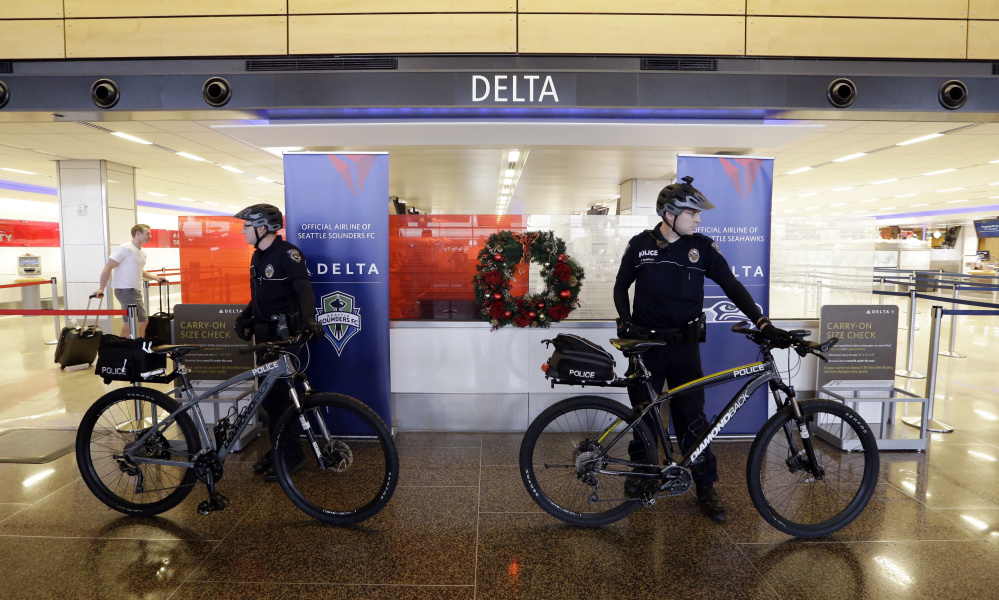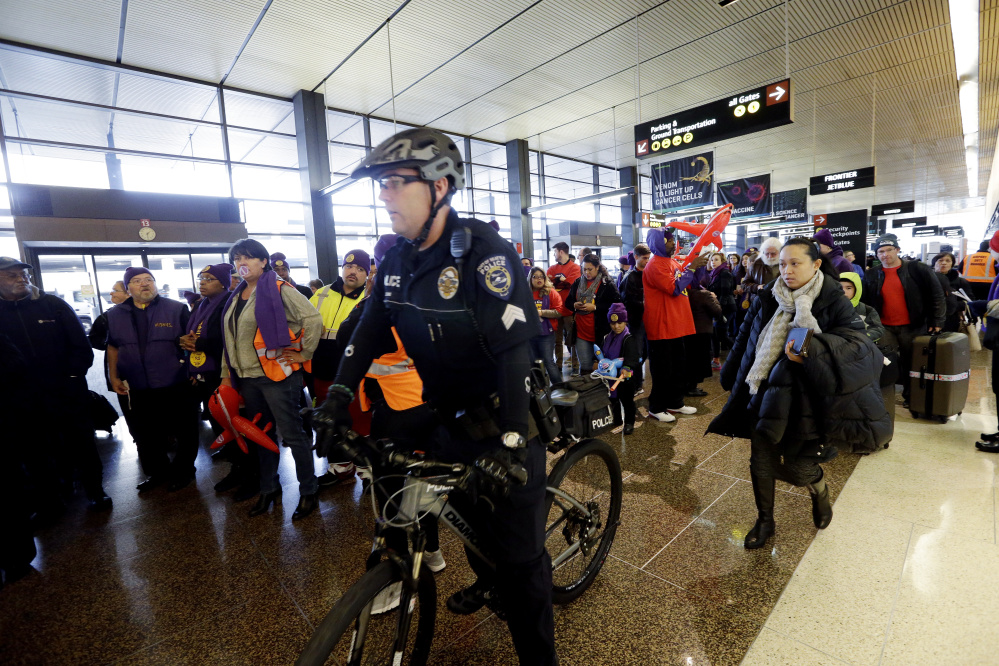CHICAGO — Airport police officers who were called to remove a passenger who refused to leave a United Express flight essentially walked into what law enforcement experts say was a no-win situation: enforcing a company’s business decision.
But if the passenger posed no threat and was not being disruptive, officers almost certainly could have tried an approach other than dragging him out of his seat and down the aisle, including simply telling the airline to resolve the situation itself, experts said.
Cellphone video of the bloodied passenger, David Dao, 69, of Elizabethtown, Kentucky, has become a public-relations nightmare for United and led to the suspension of three police officers who work for the Chicago Department of Aviation.
The video also underscores a growing dilemma: From airlines to schools, police are called to deal with situations that in the past might have been handled without them, sometimes leading officers to respond with force far beyond the provocation.
“Police have an innate bias for action, but there are times that it’s not in their best interest or that of their agency to get involved in an issue that requires you to use a high level of force,” said Jim Bueermann, president of the Police Foundation, a Washington D.C.-based research group, and former police chief in Redlands, California. “You have to ask whether … you really needed to use force when doing the airline’s bidding.”
After passengers were already seated on the full flight, United announced that four people needed to get off to make room for employees of a partner airline. When nobody accepted the airline’s offer of $800 to relinquish a seat, the airline chose four passengers at random. All but Dao agreed to leave.
It’s unclear what police were told by the airline about the situation. Screaming can be heard on the videos as Dao is dragged from his window seat and across the armrest, but he is not seen fighting with the officers. He appears relatively passive while being dragged. Later he’s seen standing in the aisle saying quietly, “I want to go home, I want to go home.”
But once police were aboard the plane, it would have been difficult to walk away, especially if they did not know why the passenger was asked to leave, said Kevin Murphy, executive director of the Airport Law Enforcement Agencies Network.
“Once you’re there, it becomes tough to disengage. You have an obligation,” Murphy said. “If someone is saying they’re staying no matter what the property owner says, you have to wonder why they want to try so hard,” to stay … “Is there something else going on?”
Send questions/comments to the editors.




Success. Please wait for the page to reload. If the page does not reload within 5 seconds, please refresh the page.
Enter your email and password to access comments.
Hi, to comment on stories you must . This profile is in addition to your subscription and website login.
Already have a commenting profile? .
Invalid username/password.
Please check your email to confirm and complete your registration.
Only subscribers are eligible to post comments. Please subscribe or login first for digital access. Here’s why.
Use the form below to reset your password. When you've submitted your account email, we will send an email with a reset code.